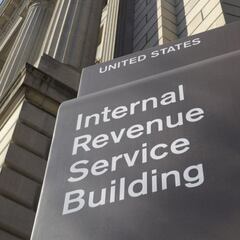Is covid-19 considered a natural disaster for taxes?
The pandemic was declared a "qualified disaster," but tax law means there is little extra to claim back from the IRS.


Despite dwindling case numbers in the US, but still very high numbers of daily deaths, the covid-19 pandemic is still continuing.
U.S. reported 3958 COVID deaths yesterday.
— Walker Bragman (@WalkerBragman) February 6, 2022
We’ve been above 3K every day of this month so far, bringing to the total to 14.2K.
Mass infection=mass death
Many are wondering what the pandemic means for their tax returns, especially as the tax season is open from now until mid-April.
An aspect that could have potentially affected your tax return is 'qualified disaster relief,' special funds allocated by the federal government in times of natural crisis. However, a loophole means that despite having the title, people who have missed work due to contracting covid-19 get no extra tax break.
Related stories:
- Are property taxes deductible?
- Does social security count as income?
- What does it mean when the IRS accepts your taxes?
- Does tax season affect the stock market?
What is qualified disaster relief?
Qualified disaster relief is money that the federal government provides to people who have been affected by natural disasters in the US. Usually, this applies to events such as tornadoes and wildfires.
An employee who receives qualified disaster funds has to pay tax on said funds, but can spread the taxable income over three tax years.
In addition, the Qualified Disaster Distribution is exempt from the 10 percent penalty tax that can apply for early distributions from tax-qualified plans.
How does this relate to the pandemic?
The pandemic was declared a qualified disaster on March 12, 2020, and has been extended to cover the whole covid-19 disaster.
There was some hope that this would mean time taken off work because of covid-19 illness could lead to a tax cut, as per regulations regarding natural disasters.
Related stories
But the IRS has quashed rumor of this by pointing out that in the covid-19 outbreak:
Qualified wages are not excludible qualified disaster relief payments, because qualified wages are what an individual would otherwise earn as compensation, rather than payments to offset any particular expenses that an individual would incur due to covid-19.
IRS
Basically, what this means is that the payments do not include qualified wages that are paid by an employer, even those that are paid when an employee is not providing services.
- Income tax return
- Science
- Agencia Tributaria
- Income tax
- Coronavirus Covid-19
- Taxes
- Inland Revenue
- Government agencies
- Pandemic
- Coronavirus
- Natural disasters
- Tributes
- Virology
- Outbreak
- Infectious diseases
- Disasters
- Public finances
- Microbiology
- Diseases
- Accidents and crimes
- State administration
- Medicine
- Public administration
- Finances
- Biology
- Life sciences

